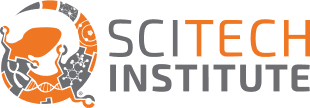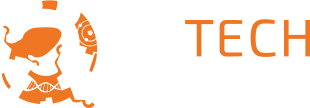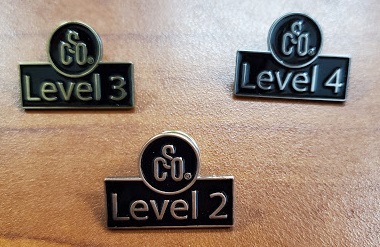
Developing the soft skills.
When students join the Chief Science Officers program, they create and implement regional action plans related to STEM and STEM education. The CSO program provides training to help the students develop leadership skills to enable that process, as well as creating a strong foundation to further their careers one day.
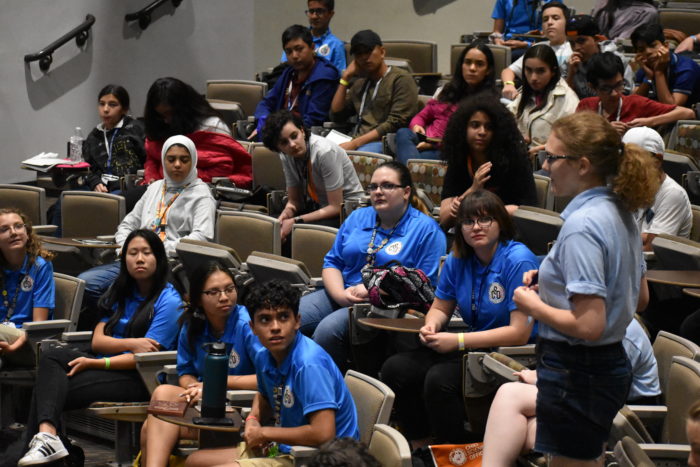
The Leadership Training Institute is one of the most important steps in the CSO experience. Each year during the LTI, CSOs gain more understanding of their roles as leaders, develop action plans, practice communication skills, and establish a network with other STEM-minded individuals around the world. Students join the CSO program at Level 1, and as they gain experience, their training progresses through Levels 2, 3, and 4. Some students will even go on to be selected to become members of the CSO International Leadership Council.

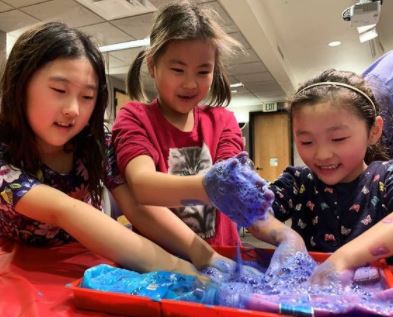
On November 21, many Chief Science Officers attended the Level 2 Leadership Training Institute. Here, a few share their experience and insights about the training, and they describe how the program has had an impact on them personally.
CSOs described how the training helped him/her envision community impact and narrow down his/her action plan idea. “When training started, I was unsure about how I would reach out in the community with my action plan, but things changed after breakout sessions where I got to collaborate and brainstorm with fellow CSOs from around the country. I continue to grow as a leader and have developed a new action plan which includes having a booth at my county fair in the summer highlighting a STEM topic such as renewable energy or fiber optics. With this plan and support from others, I know I can make an even bigger impact in the community.”
The training also helped CSOs understand some personal qualities, which will enable each one to be more successful. One CSO said, “After attending the training, I have a better understanding of different communication styles and approaches to solving problems. What I learned about my style includes my tendency to take on a lot of responsibilities–but this can be a bad thing if I take on too much. I should work on my delegation skills so I don’t overload myself with tasks and allow others to help, which is crucial to become a better leader.”

CSOs also emphasized the importance of the training. “The CSO program has made an impact on me personally by giving me the opportunity and the resources to impact the people in my community through STEM. I feel excited about the program and I am looking forward to more action plans and furthering my leadership skills this year!”
One CSO was initially apprehensive about moving up into the CSO Level 2 group, but leaders Kelly Greene and Hope Parker helped the CSO understand more about the challenges for Level 2 and promised the support of the Chief Science Officers organization. They said, “I continue to grow as a leader and have developed a new action plan which includes a STEM career fair for high schoolers throughout my district. With this plan and support from others, I know I can make an even bigger impact in the community.”
CSOs in the Level 2 training also benefited from learning about different communication styles and approaches to solving problems. With valuable training completed, and an understanding of the organization’s support, a CSO stated, “I feel super excited and I am looking forward to executing my action plan this year! The CSO program has made an impact on me personally by allowing me to share my voice and impact in the STEM community and beyond.”
This year, the LTI Level 2 Training had to be held on Zoom because of COVID-19 distancing requirements. CSO Austin, Pennsylvania wasn’t sure if the group would feel excitement and participate well on Zoom, but his hesitation didn’t last long. He said, “Things changed after the engineering challenge activity, where CSO’s opened up and had fun, innovated, and lightened the otherwise formal mood of the Zoom!”

Austin’s vision for his action plan took shape at the training. “I continue to grow as a leader and am expanding my current action plan of creating and publishing podcasts about a variety of STEM topics. To achieve this expansion, I will request recommendations for topics from students and better advertise the podcasts to increase viewership and engagement. With this plan and support from others, I know I can make an even bigger impact in the community.”
By learning about communication styles, Austin discovered how he can be more effective. “After attending the training, I have a better understanding of different communication styles and approaches to solving problems. What I learned about my style includes the fact that I think deeper than what is expected; I get bogged down in too much intellectual thought in the moment. By looking at the bigger picture, making correlations between the topic and other instances, and bringing these thoughts to the table, I can increase engagement, which will lead to better discussions and ideas.”
As a Chief Science Officer, Austin–and all students–develop new skills and personal awareness to empower them in life. He said, “The CSO program has made an impact on me personally by providing a leadership role that I feel proud about and use to lead others in discussions and actions. I feel ambitious, and I am looking forward to impacting my community via my action plan this year!”
Throughout the year, Chief Science Officers will continue to receive training to build their own skill sets. They will team up with other students for greater collective impact. And they will become confident, expectant youth who are on a mission to improve STEM education in their communities while making the world a better place.

